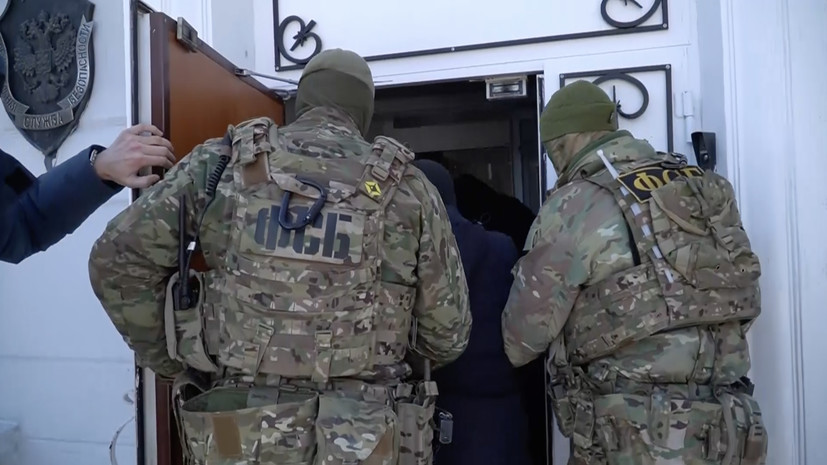A resident of Komsomolsk-on-Amur was detained for trying to pass information to Ukrainian intelligence.
This was reported by the FSB Public Relations Center.
“The Federal Security Service of the Russian Federation stopped the illegal activities of a resident of the city of Komsomolsk-on-Amur, suspected of high treason,” the report says.
In the course of the operational-search activities, it was established that the detainee, on his own initiative, via the Internet, contacted a representative of the Main Intelligence Directorate of the Ministry of Defense of Ukraine in order to convey information regarding military facilities of the Ministry of Defense of the Russian Federation stationed on the territory of the Khabarovsk Territory, which can be used to carry out sabotage and terrorist acts, strikes with high-precision weapons and unmanned aerial vehicles in the areas of loading, maintenance and routes of military equipment.
The FSB added that a criminal case had been opened on suspicion of committing a crime under Art.
275 (“Treason”) of the Criminal Code of Russia.
Detention of a resident of Komsomolsk-on-Amur, suspected of treason
On February 27, two residents of Sevastopol were detained, who initiatively established contact with the special services of Ukraine in order to transfer data for a monetary reward on the location of objects of the Russian Ministry of Defense, the leakage of which abroad could damage the state's defense capability.
Criminal cases were initiated against the detainees under the articles “Treason” and “Establishment of cooperation on a confidential basis with a foreign state”.
On February 15, the FSB announced the arrest of a Ukrainian citizen involved in sabotage at infrastructure facilities of the Moscow Railway.
The detainee during interrogation confirmed that he was recruited by the Ukrainian and Polish special services.
“I was forced to comply with all their demands, as they threatened physical violence against my daughter, who lives in Vinnitsa,” he said.
Also on that day in Rostov-on-Don, a member of the Azov National Regiment* was detained, who arrived on the territory of the Russian Federation under the guise of a refugee.
According to the FSB, the detainee adhered to ultra-right neo-Nazi views and promoted the interests of the terrorist organization among the residents of Rostov-on-Don.
"Put a barrier in the way of sabotage groups"
Vladimir Putin instructed the FSB border service to intensify work on the Russian-Ukrainian section of the border.
According to the President of the Russian Federation, security agencies should form a barrier on the way of sabotage groups, as well as stop attempts to illegally transport weapons and ammunition into Russia.
The head of state also stressed that "countering the terrorist threat" remains an urgent task, given the increased number of such crimes.
“Obviously, this is connected with the Kiev regime’s attempts to use terrorist methods – we are well aware of this, they have been using them in Donbas for a long time – and with the desire of the West to reanimate the cells of extremists and terrorists, their old friends of the so-called, in quotation marks, on our territory.
And we know that they never disdained to use both radicals and extremists in their interests, despite all the loud statements about the fight against international terrorism.
Against us, they always use what is at hand, what is possible, then they use it.
It has always been like this, and it is like that now,” Putin said at a meeting of the FSB collegium on February 27.
As previously reported in the NAC, in 2022, at the preparation stage, 123 terrorist crimes were prevented, including 64 terrorist attacks, and the activities of 68 clandestine cells of international terrorist organizations were suppressed.
In addition, more than 400 Ukrainian nationalists and persons who committed war crimes were detained at checkpoints while trying to cross the state border.
* "Azov" - the organization was recognized as a terrorist organization by the decision of the Supreme Court of the Russian Federation of 08/02/2022.

